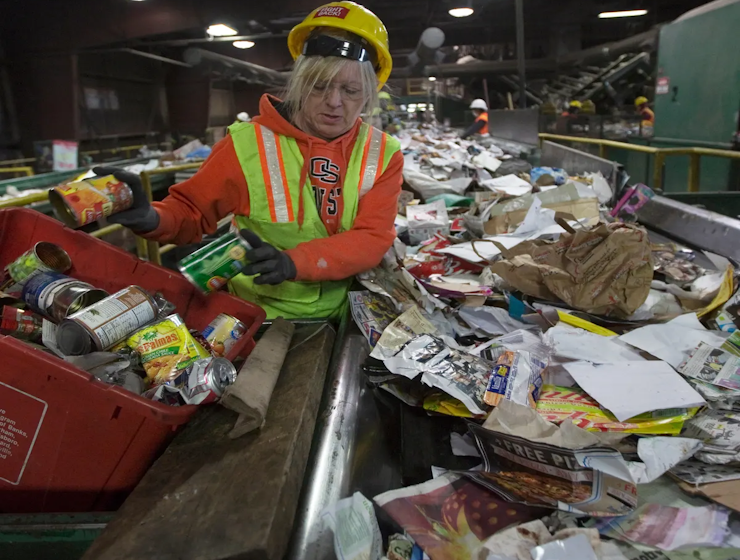Solutions are rare to improve the quality of waste sorting, unlike those to increase the quantity sorted. Without a paradigm shift, it seems difficult to reduce sorting refusals to improve sorting quality. To remove these packaging and graphic papers from landfill or incineration, it is necessary to change the focus on sorting errors to move away from the solutions currently proposed.
The design of waste bins elsewhere in the world (Brussels, Japan, Laos, etc.) is much better thought out for sorting than for our famous trash cans of South Carolina.
The heuristic solution presented below is a mixture of social sciences and devices seen here and there in the world. It calls into question the hackneyed discourse according to which sorting errors are only the errors of others. Despite this potential new tool, the majority of us have already made and will make sorting errors for various reasons. As the saying goes, to err is human, but the error here probably lies elsewhere, with the designer.
Although the annihilation of sorting errors seems unattainable, it appears plausible to reduce them via a redesign of the cover by improving its salience, its affordance and its communication. The sorter no longer has to look for sorting instructions, on a piece of packaging, on a sorting memo, on a sticker, it must be imposed on it. For Example think of the invention of a protruding sorting bin, afforded, without risk of reactance and revised in terms of communication on sorting instructions.
Scientific waste management
Scientific data enlightens us and serves to support the point that we need to make better sorting bins. Several data can be used here to try to reduce the gap between current scientific knowledge and its non-implementation in the professional practice of the structures concerned by the waste sorting users (communities, unions, companies, etc.).
Someone could have launched and developed an activity to produce and manufacture these lids, and perhaps make this activity an incredible windfall! The market for producers and suppliers of wheeled waste bins is an oligopolistic market therefore held by a few players. The barriers to entry into this market seem high (investment in molds to shape the lids, manufacturing according to precise standards, etc.).
But it is better to make a sorting container invention known to as many people as possible to try to stem sorting errors whose economic and environmental consequences are harmful. And it’s not by developing this alone in your corner that it will spread, even if it means that the invention is recovered with ingratitude. This new waste management invention has a high probability of working.
According to waste experts at Dumpster Rental HQ, Charleston SC, nothing beats testing and experimentation in real conditions with scientific methodology. For this, it is necessary for those interested in this new solution to take a few risks. The investment a priori does not seem financially insurmountable, and the return on investment could be achieved quickly if successful. It goes without saying that what is proposed here is not a miracle waste solution, it is an additional solution to a range of actions already at work or to be invented, to be improved (regulations, taxation, training, awareness. ..). The biggest risk would a priori be not trying.
This type of junk disposal invention will find a buyer and that it will be able to improve the quality of sorting in the USA and elsewhere, without having too much harm to reducing the weight of the waste that we produce (sorting for recycling and prevention are contradictory when well even some are convinced that they are complementary).
We must listen to everyone to be able to better understand these waste management problems and solve them, in this case those of the daily sorters. Ignoring the individual can be a form of social violence. We must prevent the risk of the attitude of the knower, which is not to listen, not to let the other express themselves and not to assume that the other can have an idea. But first of all, we must learn how to reduce our waste creation!

